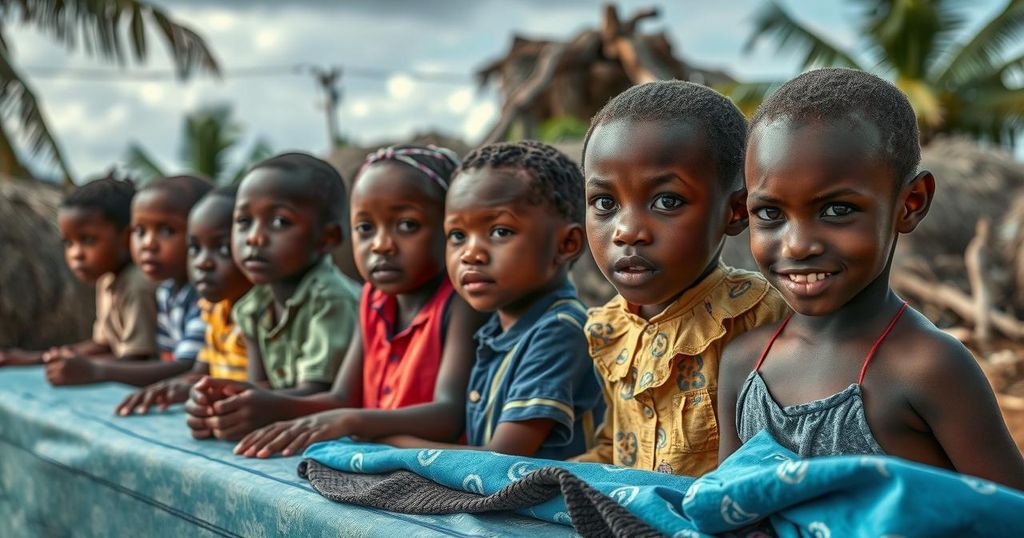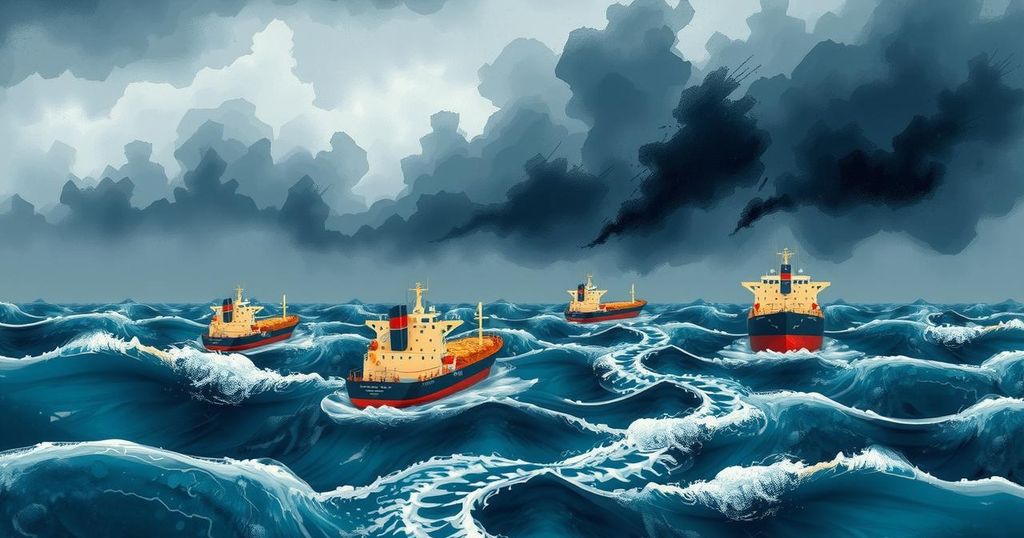Over 22,500 Children Face Threat from Tropical Cyclone Dikeledi in Madagascar
Northern Madagascar is bracing for Tropical Cyclone Dikeledi, with over 22,500 children at risk due to anticipated severe weather, including high winds and flooding. Save the Children expresses alarm over the cyclone’s potential to displace families and damage critical infrastructure. The organization calls for increased climate funding to assist lower-income nations in facing the growing challenges posed by climate change.
On January 11, 2025, northern Madagascar faces the imminent threat of Tropical Cyclone Dikeledi, which is set to make landfall with the potential for catastrophic impacts. More than 22,500 children, along with their families, are preparing for severe weather conditions, including high winds, torrential rains, and flooding. In anticipation, authorities have initiated widespread evacuations in vulnerable regions, underscoring the urgency of the situation as meteorological forecasts predict extreme weather conditions in the coming days.
The country previously experienced a severe tropical storm in December, leading to significant casualties in the nearby territory. This new cyclone presents serious concerns for the well-being of children, as it is likely to displace families and damage essential infrastructure such as schools and hospitals. Save the Children reports that extreme weather events are becoming increasingly frequent due to climate change, stressing the necessity for higher-income nations to provide financial support to vulnerable countries struggling to cope with these climate impacts.
Tatiana Dasy, Save the Children’s Country Representative for Madagascar, emphasized the grave risk to children in the affected areas. Immediate action is required to assess the situation post-cyclone and to assist families in crisis. The organization has already prepared crucial supplies and bolstered community resilience against such disasters, highlighting its commitment to safeguarding vulnerable children and families.
As the cyclone approaches, the need for prompt humanitarian aid and rescue operations becomes critical. Save the Children is calling for increased climate funding from wealthier nations, aiming to better support lower-income countries that bear the brunt of climate-related disasters. The organization’s long history in Madagascar includes continuous support since 2016, focusing on emergency relief and child protection.
Tropical cyclones pose a significant threat to Madagascar, a nation frequently impacted by extreme weather due to its geographical location. The region has experienced severe storms in recent years, leading to loss of life and extensive displacement, particularly affecting children and vulnerable populations. In light of worsening climate conditions globally, the frequency and intensity of such weather phenomena are expected to rise, necessitating urgent action from the international community to address the climate crisis and its humanitarian impacts. Organizations like Save the Children strive to mitigate these effects through preparedness and aid efforts. Madagascar’s history with storms such as Tropical Storm Chido, which inflicted harm on nearby territories, illustrates the dangerous reality faced by communities. Efforts to fund climate resilience initiatives are critical in supporting areas that lack the resources to cope with such emergencies. Save the Children has established a robust presence in Madagascar since 2016, focusing on emergency responses and enhancing children’s safety and well-being.
In conclusion, the imminent arrival of Tropical Cyclone Dikeledi highlights the critical vulnerabilities faced by over 22,500 children and their families in northern Madagascar. The increasing frequency of extreme weather events, intensified by the climate crisis, necessitates strong support and intervention efforts. Save the Children continues to advocate for immediate action to protect these vulnerable communities and urges wealthier nations to fulfill their responsibilities in providing financial assistance for climate resilience. The organization remains committed to facilitating emergency support and protecting children’s rights, reaffirming their mission to prioritize children’s futures amid crises.
Original Source: www.savethechildren.org




Post Comment